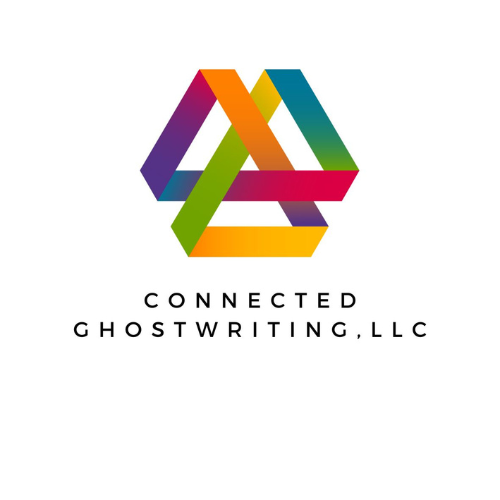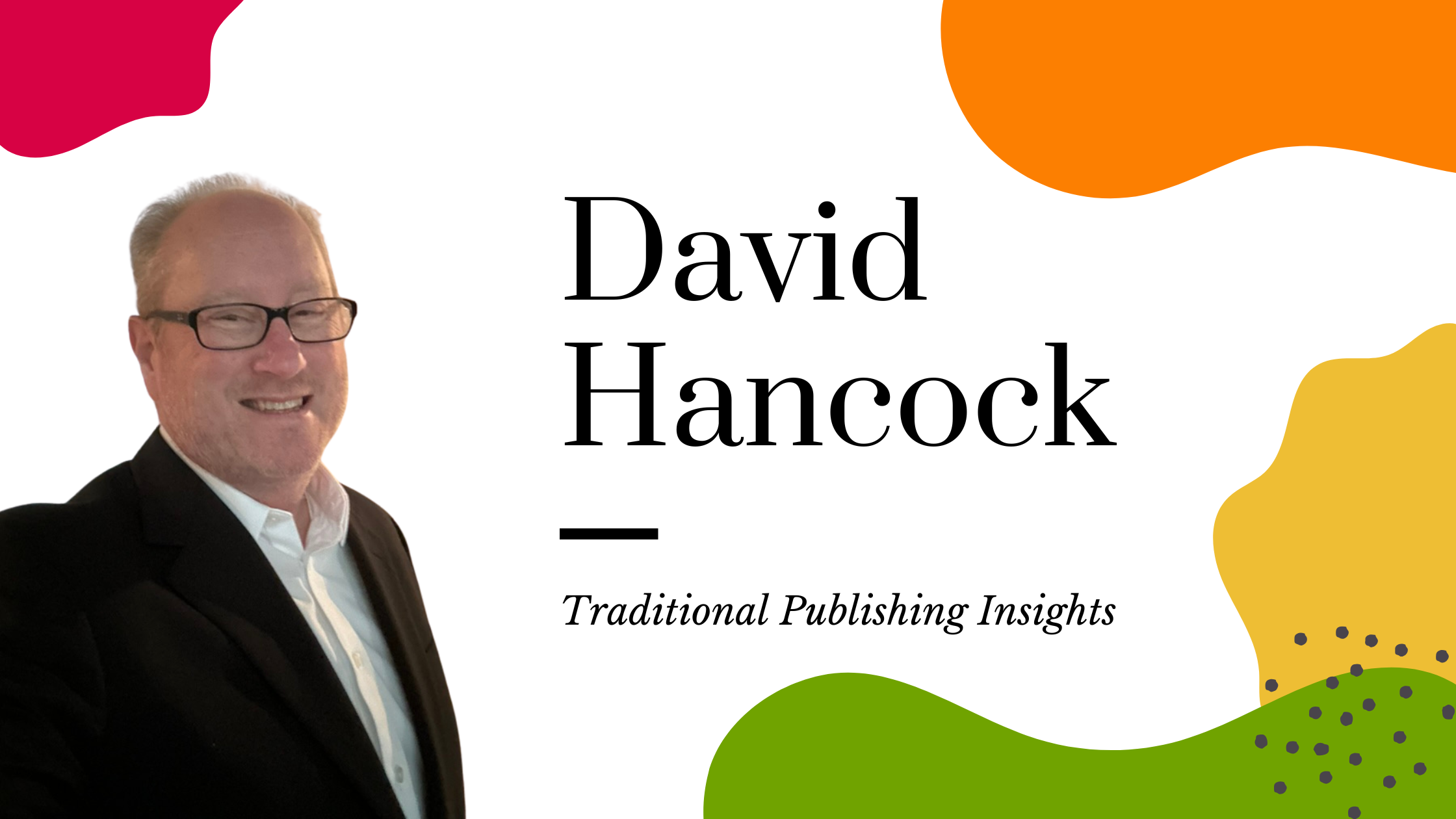Are you dreaming of becoming a published author but feeling overwhelmed by the mysterious world of traditional publishing? You’re not alone! The publishing industry can seem like an impenetrable fortress with its gatekeepers, lengthy submissions processes, and elusive book deals. But fear not—we’ve got you covered.
I first met David Hancock through my mentor, Nick Pavlidis. David is the founder of the unconventional traditional publishing house Morgan James Publishing. Now, I’m publishing my first book with Morgan James because I’ve loved watching how they work with my authors. I asked David to chat with me and demystify the publishing process. Whether you’re a first-time indie author or considering the traditional publishing route, David’s insights will help you navigate this exciting journey with clarity and confidence.
Q: What inspired you to start Morgan James Publishing?
My journey into the world of publishing began in the 1990s when I was a banker. Back then, I was doing well financially, but I felt stuck. My bosses pushed me to achieve more, hire a bigger team, and expand my business, but I couldn’t articulate why I was successful in the first place. To grow, I realized I needed guidance, so I began studying sales, marketing, and leadership—reading books, attending seminars, and learning from experts like Zig Ziglar and John Maxwell.
One book, Guerrilla Marketing by Jay Levinson, changed everything for me. In his book, he encouraged readers to email him, which I did (thinking he wouldn’t respond). He did respond, and that started a long friendship and business relationship. Jay emphasized creative, cost-effective strategies to solve problems and achieve goals. His advice to “write a book” felt overwhelming at first—I wasn’t a writer, and I didn’t think I had anything unique to say. But Jay helped me see the value of my expertise and encouraged me to share my story.
Writing my first book was a transformative experience. It doubled my income, as clients no longer negotiated my fees. It established me as an authority in my field, opening doors to media interviews and speaking opportunities. I got a three-book deal with a traditional publishing house. While the exposure was incredible, the process itself was frustrating. I lost creative control, had to get my PowerPoint presentations approved by the publisher, and struggled to meet their book sales expectations despite significant personal effort. By the time my second and third books came out, I knew the traditional publishing route wasn’t for me.
I also tried self-publishing, which gave me full creative control and the freedom to market my book as I saw fit. However, it came with its own challenges. Self-published books struggled to get into bookstores, and the media rarely gave attention to self-published authors, as they relied on publishing houses to vet their sources.
Frustrated, I turned to Jay Levinson, now a mentor and friend, and shared my concerns about the publishing industry. Jay encouraged me to outline what an ideal relationship between authors and a publisher might look like. I imagined a publishing process where authors retained creative control, partnered with the publisher on decision-making, and leveraged their books to support their broader goals—whether that was growing a business, spreading a message, or establishing thought leadership.
I brought my vision to Jay, thinking we could present it to a major publisher like Houghton Mifflin, the original publisher of Guerrilla Marketing. Instead, Jay laughed and said, “If you want it done right, you do it.” That challenge became the foundation of Morgan James Publishing. Today, we’re proud to be an unconventional publishing house, combining the best aspects of traditional publishing with the entrepreneurial spirit of self-publishing. Our mission is simple: to empower authors to retain control, achieve their goals, and build meaningful relationships through the power of books.
Q: How is Morgan James Publishing different from traditional publishing houses?
Traditional publishing houses, including the Big Five like Penguin Random House and HarperCollins, often require authors to relinquish intellectual property rights. At Morgan James, authors retain creative control and work closely with us throughout the publishing process. We’re also relationship-focused, partnering with authors to ensure their books support their broader business or personal goals.
Q: What advice do you have for finding your unique angle in book publishing?
David Hancock: Your unique angle comes from your story, voice, and perspective. Even in competitive genres like business or self-help, your experiences and case studies make your work stand out. Focus on what sets you apart and lean into your personal journey.
Q: What’s the submissions process like at Morgan James Publishing?
David Hancock: We evaluate submissions based on both the author and the book proposal. While great content is essential, you can always hire a different editor. We prioritize authors with a strong “why.” Why are you writing this book? How will it serve your audience? A standout query letter or a creative submission—like a video pitch—helps us connect with you on a deeper level.
Q: How can authors succeed in marketing their books?
David Hancock: Whether you pursue traditional publishing, self-publishing, or hybrid publishing, the reality is that marketing falls largely on the author’s shoulders. Even with support from a publishing house, your ability to market your book effectively is critical to its success. Publishers, especially traditional publishing houses, may handle some aspects of distribution and promotion, but no one will be as invested in your book as you are.
The best time to start marketing is as soon as you decide to write your book. Don’t wait until it’s published to start building an audience—by then, you’ve missed valuable opportunities to create anticipation and establish connections with potential readers. Start by planting the seeds early. Share your journey on social media, discuss the writing process, and hint at the value your book will bring. This builds excitement and creates a relationship with your audience long before the book hits shelves.
Social media is a fantastic tool for this, but it’s not about follower counts. We’re hearing from bookstore buyers that they really don’t care how many fans and followers you have anymore. Whereas 10 years ago, if you didn’t have 15,000 followers on a platform they wouldn’t even look at you. Now, A million followers won’t matter if they’re not engaged. What matters is connection and authenticity. Use your social platforms to share your unique perspective, behind-the-scenes moments, and personal stories. Engage with your audience by responding to comments, answering questions, and showing genuine interest in their feedback. People don’t just want to buy a book—they want to buy your book because they feel connected to you as the author.
Remember that successful marketing isn’t just about selling books—it’s about building relationships. Focus on creating meaningful connections, and book sales will naturally follow. When readers feel like they know you and trust your voice, they’ll not only buy your book but also share it with others, becoming ambassadors for your work.The key takeaway is this: Start early, be authentic, and focus on engaging with your audience. Whether you’re working with a traditional publishing house, self-publishing, or exploring hybrid publishing, your success will depend on the connections you build and the effort you put into sharing your message.
Q: What are your thoughts on AI in the publishing industry?
David Hancock: AI is a fantastic tool for brainstorming, copyediting, or generating marketing content, but it can’t replace your personal voice. Books written entirely by AI lack copyright protection and, more importantly, the human connection that readers crave.
You can use AI to help you build book funnels. You can use AI to help you create posts, blog posts, articles, scripts for your videos. I mean, there are so many things that you can do by leveraging your content and spitting it back out to you because you don’t have time to do it. And that’s okay. Use AI to enhance your work or speed up your process, but make sure your book reflects your unique voice and story.
Q: What formats should authors consider for book publishing?
David Hancock: Offer your book in every format—print, ebook, audiobook—to make it accessible to all readers. At Morgan James, we distribute ebooks to over 1,800 platforms, including Amazon, and bundle free ebooks with print copies to enhance value. Audiobooks are another great way to connect with readers, especially if you add behind-the-scenes commentary.
Q: What are your top 3 tips for authors that they can implement this week?
David Hancock:
Stay Connected to the Right People
Surround yourself with knowledgeable professionals and trusted connections who understand the publishing process. These individuals can guide you, offer valuable feedback, and even fast-track your book to publishing. A strong network can make all the difference in navigating the complexities of traditional publishing or hybrid publishing successfully.
Start Marketing the Moment You Decide to Write
Begin promoting your book as soon as you start writing. Don’t worry about someone stealing your idea—no one can replicate your unique voice or perspective. Start planting seeds early by sharing your journey, insights, and updates on social media or through other channels. This creates anticipation and establishes your presence as an author before your book is even published.
Develop a Clear long-term Plan
A solid business strategy is essential. In Guerrilla Marketing for Writers we talk about a seven-sentence marketing plan, which helps authors outline their goals, audience, and steps for success. Implementing a structured plan not only provides clarity for your efforts but also demonstrates to publishers that you’re serious about your book’s success.
Q: What final advice do you have for aspiring authors?
David Hancock: Finish the book! The traditional publishing process, hybrid publishing, or even self-publishing requires dedication. Don’t let self-doubt or naysayers stop you. Persevere, and you’ll be amazed at what you can accomplish.
Conclusion
The path to becoming a published author may seem daunting, but with the right tools, relationships, and mindset, it’s absolutely achievable. Whether you’re pursuing traditional publishing houses or exploring the flexibility of hybrid publishing, the key is to stay focused on your goals, embrace your unique story, and never give up.
Ready to take the next step? Grab a copy of David’s book, Guerrilla Marketing for Writers and start crafting your plan for book publishing success. It’s packed with practical tips to help you navigate the publishing process, connect with readers, and achieve your book sales goals.


